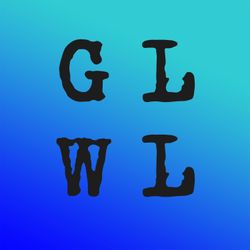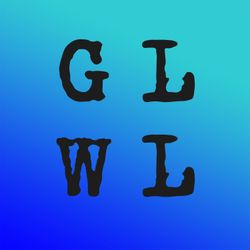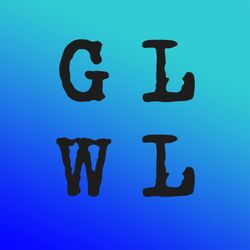Share

Getting Lit With Linda
The Stories Behind the Strike: Kevin Lambert's Querelle of Roberval
Season 3, Ep. 40
•
In this episode, Linda reflects on a strike in which she was a participant and the real complexities of its participants and affiliated institutions as a way into Kevin Lambert's marvellous new book, Querelle of Roberval (Biblioasis). Invoking the proportions and form of Greek tragedy, Lambert locates the conflict of this book in a small town in Quebec and shows how its participants all have complex motivations for their actions--including hatred, lust, and revenge.
In the Takeaway, Linda highly recommends a column by Casey Plett called "Balls Out: A Column on Being Transgendered" (which appeared in McSweeney's Internet Tendency.), a poignant and engaging series about the process of transitioning.
More episodes
View all episodes

95. The Miracles of Change & Second Chances: Madeleine Thien's "Alchemy"
11:18||Season 6, Ep. 95Why should we pay attention to scars or scar tissue? After the original injury heals and its pain recedes, should we ignore what’s left behind? In this episode, Linda mulls over these questions while considering Madeleine Thien's "Alchemy," from her collection, Simple Recipes. Don't know Thien's work? Check out her award-winning novel, Do Not Say We Have Nothing (which Linda discussed in Season 1, Episode 3) and her most recent novel, The Book of Records. She also offers her best wishes for the new year, in this, the last episode of Season 6 (2025).Writer/host/producer: Linda Morra; Associate Producer: Maia Harris; Music: Raphael Krux (The Madness of Linda).
94. A Story of Unfitting: Susan Swan's Memoir, Big Girls Don't Cry
48:23||Season 6, Ep. 94Our warmest wishes for the season – and a reminder that this is the last interview for the podcast (there may be one smaller episode at the year’s end, but not an interview), before we open up voting for this year’s GLWL awards: the author featured in your favourite episode will receive a cash prize and medal to honour their involvement.In this episode, Linda reflects on how boxes are at times about imposed limitations. "Don’t box me in," you might argue – or let’s try to think outside the box (because it’s time for a change!). And it is this -- thinking and living outside the lines (and boxes) -- that Susan Swan’s wonderful new memoir, Big Girls Don’t Cry: A Memoir About Taking Up Space (HarperCollijns), compels us to do, to locate our sense of dignity and agency, to find our sense of self-worth.Swan is the author of several novels including The Biggest Modern Woman in the World (1983), The Last of The Golden Girls (1989), What Casanova Told Me (2004), and The Wives of Bath (1993), which was made into the film Lost and Delirious (3:45). In this episode, we discuss how taking up space can be positive for women (and men too!), a means to shift beyond the conventions that have hemmed her in (and us) and to find our way out of the boxes that have contained us.Other points of discussion:the genre of the memoirMargaret Atwood and official autobiographySoren KierkegaardExecutive Producer: Linda Morra; Associate Producer: Maia Harris; Music by Raphael Krux ("The Madness of Linda") and Kevin MacLeod ("Natural Vibes"); Sound producer: Jason C.
93. Ring-Side Seats in a High-Stakes Environment: Brian Stewart’s On the Ground
58:42||Season 6, Ep. 93On a lovely fall afternoon in October, Linda drove up to possibly one of the most charming spots in Quebec, just off-island of Montreal —Hudson, on the unceded territory of the Kanien’keha:ka. Hudson has much to commend to it, but, in this instance, it was StoryFest, the annual literary program hosted through the Greenwood Centre that invites writers to come and speak to audiences there and that extends back to 2002 (yes, it’s been evolving over twenty years).Linda drove up to Hudson to interview the journalist, Brian Stewart, about his memoir, On the Ground: My Life as a Foreign Correspondent -- a perfect book for this year's theme, Getting Lit Goes Global. Stewart was, for decades, one of Canada’s most prominent television journalists, acclaimed for his foreign coverage for both CBC’s The National and The Journal. Born in Montreal (welcome back, Brian!), and originally a newspaper reporter, he went on to become foreign correspondent for CBC in London and for NBC in Frankfurt. He worked in 10 war zones, hosted the CBC foreign affairs show Worldview, and interviewed many of the historic figures of his time. In this interview and in his book, Stewart speaks of the urgency of having journalists on the ground to bear witness to what is happening across the globe and of having journalists as moral witnesses, reminding audiences of the costs globally of famine and war and environmental disaster, of the need for greater political accountability.With thanks to StoryFest organizers, Julie Gedeon and Sandy Racicot, to Larry Cool for recording sound, and to Jason C. for sound production. Linda Morra, Producer/Host; Maia Harris, Associate Producer; and Raphael Krux, Music.Just a reminder that voting opens soon for this year’s GLWL prize for best episode or author. Please do vote and honour your favourite writer represented in an episode of season 6, in 2025.
92. Taking Out the Imperial Trash - Jovanni Sy's A Taste of Empire
36:55||Season 6, Ep. 92Linda AND students of Bishop's University interview the award-winning Montreal-based playwright, Jovanni Sy, in this episode of Getting Lit With Linda. Linda considers how one of his plays in particular, A Taste of Empire (Talonbooks), obliges us confront the abuses of a system of globalization, wherein the processes involved in maximizing profit are brought to the fore. Even as the sous-chef, also named Jovanni Sy, tries to glamorize the industry of haute cuisine, we as spectators and readers must grapple with an imperialist system that undergirds it, that funnels wealth and resources from all corners of the earth to a centralized core. Linda also announces a new award, the 2025 Getting Lit With Linda prize, being launched on December 15 of this year. We are inviting our listeners to choose either their favourite writer featured in an episodes of 2025 (Season 6) or their favourite episode in which a writer in the 2025 season was featured. The writer who wins the most votes will be given the GLWL prize of the year, with a small monetary award attached. Details about this award can be found on website, gettinglitwithlinda.com. So please DO take a moment to vote for your favourite author or episode featured this year!
91. The Other Problem that Has No Name - The Passenger Seat by Vijay Khurana
43:50||Season 6, Ep. 91Perhaps strangely, Linda applies Betty Friedan’s 1963 feminist critique of patriarchal society The Feminine Mystique, and specifically the text “The Problem That Has No Name,” to The Passenger Seat by Vijay Khurana. An Australian/British author, Khurana wrote this very fine debut novel about the real-life events of two young men from Port Alberni, Northern BC and about their toxic masculinity. This novel thus addresses another problem not yet properly identified, except perhaps in more general ways: disaffected or disconnected young men in Western society, who are situated in that space between adolescence and adulthood, and who are making key decisions about who they will become as they mature.Linda calls upon Sarah Dowling’s very fine study, Here is a Figure: Grounding Literary Form to examine how that problem has been represented in literature in terms of upright (radicalized white male) figures and prone or supine figures (victims, casualties, gendered subjects). ButThe Passenger Seat suggests a posture that is somewhere in-between. And what is that posture and who is implicated? You’ll have to listen to the episode to find out....Host/Writer: Linda MorraAssociate Producer: Maia HarrisMusic: Raphael Krux
90. Digital Trespassing: Human Rights in the Digital Age-- An Interview with Dr. Wendy Wong
47:07||Season 6, Ep. 90Linda met Dr. Wendy Wong at a conference in Kelowna, organized by Dr. Karis Shearer (1:25) and hosted by SpokenWeb (1:20), when Dr. Wong spoke about her book, We, the Data (a nod to the preamble of the United States Constitution, 4:10) -- and, since then, Linda has been obsessed. Being an expert on archival theory in relation to women writers' materials, Linda has digitization - and now datafication (7:45) - very much on the brain (and probably on her computer too). It led Linda to raise a question in this interview – at what point is datafication a form of digital trespassing? When is it going too far -- and when do we get to say it's gone too far? -- mining the details of our personal lives, even our bodies (as facial recognition technology reminds us), often for capitalist pursuits, without the direct (if not implied) consent of those furnishing the data? And what's the difference, she also asks Dr. Wong, between libraries and their archives and datafication, another means of preservation? And in her telling response, Dr. Wong reminds us that libraries (3:30) are more important than ever before.Other points of discussion:The Daily Show (Tristan Harris, Center for Humane Technology, 6:00)AI and Chat GPT and existential questions raised (6:50)algorithms (10:45)
89. Equity on a Bookshelf: An Interview with Stephanie Sinclair, Publisher of McClelland & Stewart
43:35||Season 6, Ep. 89Does anyone remember that series, New Canadian Literature (NCL), produced by McClelland & Stewart? In this interview, Linda discusses the very much new and improved series, Kanata Classics (15:06), with Stephanie Sinclair, the publisher of McClelland & Stewart -- with special guest feature, Holly, her cat. A co-editor in her own right (with her sister, Sara Sinclair), she produced You Were Made for this World (7:55) and A Steady Brightness of Being (8:02, conceived and developed in 2020, before Stephanie began working with McClelland & Stewart). Kanata Classics is Sinclair’s answer to NCL, although Kanata Classics has a much broader view in terms of who is included, represented, and celebrated within its purview - and it has a much broader reach, extending beyond Canadian borders. Kanata Classics, launched in July of this year, 2025, features six books a year from a range of Indigenous and Canadian writers. Beautifully crafted and produced, with covers and design by Kelly Hill, Kanata Classics in its first year features Halfbreed by Maria Campbell (the restored edition!), Ru by Kim Thúy, Medicine Walk by Richard Wagamese, Bear by Marian Engel, Island by Alistair MacLeod and Nishga by Jordan Abel – and, of course, listeners will remember Linda had interviewed Jordan Abel in Episode 18 of Season 2. Other references include Cody Caetano (2:51), Joshua Whithead (3:30), Jessica Johns (3:34), Billy-Ray Belcourt (2:53) and Niigaan Sinclair (15:40).
88. The Truth About Memoirs
23:08||Season 6, Ep. 88In this episode, Linda examines the resurgence of the memoir, and what readers expect - and what she expects - when we pick one up. While the first part of the episode examines the features and history of the memoir, the last part is devoted to the wonderful new memoir by Susan Swan, Big Girls Don't Cry. Highlights of this episode include:Giller prize long list (.45 sec)\Lucy Knight and The Salt Path Scandal (1.11)James Fray A Million Little Pieces (3.35)Frederick Philip Grove, In Search of Myself (3:30)The “truth” of memoir (5:44)Difference between memoir and autobiography (7:34)Julie Rak and her scholarly book, Boom! (6:12; 8:55)Guernica Press, Eva Krakow, Voice Lessons (11:52)ECW Press and a list of its published memoirs (13:00)Random House and their list of memoirs (12:03, reference to Minelle Mahtani, 12:08)Atwood and her new memoir, Book of Lives (13:35)Philippe Lejeune & the autobiographical pact (9:56) Betty Friedan, The Problem that Has No Name (19:09)
87. The Lost City of Atlantis (our future, rather than our past): Cherie Dimaline’s The Marrow Thieves and James Cairns’ In Crisis, On Crisis: Essays in Troubled Times
21:15||Season 6, Ep. 87In this episode, Linda begins by speaking about the Kingston Writers Fest (KWF) - if you are in reasonable distance, you MUST go! The most incredible line-up of authors will be there, including Madeleine Thien, Margaret Atwood, Canisia Lubrin, Nita Prose, and Ian Williams.She then thinks about Atlantis - what if Atlantis were about our future and not our past? She uses Atlantis as a way of considering the dystopian novel, Cherie Dimaline’s The Marrow Thieves (Penguin Random House). Using James Cairns’ In Crisis, On Crisis: Essays in Trouble Times (Wolsak & Wyne), she thinks about why we read novels that are apocalyptic in nature. Cairns, she notes, refers to Rumaan Alam’s Leave the World Behind (HarperCollins) and shows how we get some measure of satisfaction from reading them. Dimaline’s novel may offer that kind of satisfaction, but it is very much based in Indigenous community and what Daniel Heath Justice would call “embodied sovereignty.”Other highlights:The Lost City of Atlantis (2:15; 3:04; 4:22)Plato (2:50; 3:11)Francis Bacon’s New Atlantis (4:12)Thomas More’s Utopia (4:14)Shakespeare’s Macbeth, hubris, and the tyranny of completion (8:14)Daniel Heath Justice’s essay, “Go Away Water” (15:29)